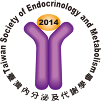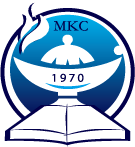
|
Statement of Publication Ethics and Publication Malpractice All papers published by Adaptive Medicine are committed to following best practices regarding ethical issues, errors, and restrictions. The expected standards of ethical behavior must be agreed on by all parties involved authors, editors, and reviewers. The ethics statements for our journal are based on the guidelines of the Committee on Publishing Ethics (COPE ) Best Practice Guidelines for Journal Editors. All authors, editors, and reviewers in Adaptive Medicine should adhere to the standards listed below.
Editor's Responsibilities
Peer review This journal follows a single-blind review process, in which the reviewers' identities are kept anonymous. Initially, the editor evaluates all submissions to determine their suitability for publication in the journal. Papers that are considered suitable are usually sent to a minimum of two independent expert reviewers who assess the scientific quality of the paper. The editor has the final decision on whether to accept or reject articles, and their decision is conclusive. The editor should not be involved in decisions regarding papers they have authored themselves, or those written by their family members or colleagues, or those related to products or services in which the editor has a financial interest. All submissions undergo standard procedures of the journal, including independent peer review by reviewers who are not affiliated with the relevant editor or their research groups. For more information on the various types of peer review used by the journal, please consult the available resources.
Publication Decisions The handling editor of Adaptive Medicine is responsible for determining which article should be published in the journal. The editor may be guided by the policies of the journal's editorial board and subject to legal requirements regarding defamation, copyright infringement, and plagiarism. The editor may make the decision in consultation with other editors or reviewers. Fair Play The intellectual content of submitted manuscripts should be evaluated without concerning the author’s race, gender, sexual orientation, religious beliefs, ethnic, origin, citizenship, or political philosophy. Confidentiality The editor and any editorial staff are not allowed to disclose any information about a submitted manuscript to anyone other than the corresponding author, reviewers, potential reviewers, other editorial advisers, and publishers as appropriate. Disclosure and Conflicts of Interest No unpublished materials in a submitted manuscript may be used in an editor’s own research without the author's written consent.
Duties of Reviewers
Contribution to Editorial Decisions Peer reviewers assist the editors in making editorial decisions, and they can also suggest improvement to the paper through editorial communications with the author. Promptness If any invited reviewer who believes that he or she is not qualified to review the research reported in the manuscript or knows that it cannot be reviewed in a timely manner, he or she should immediately notify the editor and excuse himself or herself from the review process. Confidentiality Any manuscripts received for review must be treated as confidential documents. Unless authorized by the editor, they must not be shown or discussed with others. Standards of Objectivity Review should be conducted objectively and unbiasedly. Personal criticism of the author is inappropriate and unacceptable. Reviewers should express their views clearly with supporting arguments. Acknowledgement of Sources Reviewers should bring to the attention of the editor regarding any potential ethical issues. Reviewers should identify relevant published works that have not been cited by the author. Any statements, observations, derivations, or arguments that had been previously reported should be accompanied by the relevant citations. Reviewers should also call to the editor’s attention any substantial similarities or overlaps between manuscripts under consideration and any other published papers for which they have personal knowledge. Disclosure and Conflict of Interest Privileged information or ideas obtained through peer review must be kept confidential and may not be used for personal advantage. Reviewers should not consider manuscripts that they have conflicts of interest with due to competition, cooperation, or other relationships or connections with any of the authors, companies, or institutions related to the submission.
Duties of Authors
Reporting standards Authors reporting results of original research should present an accurate account of the work performed as well as an objective discussion of its significance. Underlying data should be represented accurately in the paper. A paper should contain sufficient detail and references to permit others to replicate the work. Fraudulent or knowingly inaccurate statements constitute unethical behavior and are unacceptable. Data access and retention Authors may be asked to provide the raw data in connection with a paper for editorial review, and should be prepared to provide public access to such data and should in any event be prepared to retain such data for a reasonable time after publication. Originality and plagiarism Authors should ensure that they have written entirely original works and has not been published elsewhere in any language, and if the authors have used the work and/or words of others that this has been appropriately cited or quoted. To ensure the authenticity and originality of all manuscripts, authors are required to guarantee that their work is free from plagiarism. It is strongly recommended that authors use plagiarism detection software to check their submissions for similarity. Editors at Adaptive Medicine also utilize Turnitin software to check for plagiarism in submitted articles. If plagiarism is detected by the editorial board member, reviewer, editor etc., in any stage of article process--before or after acceptance then we will alert the same to the author(s) and will ask them to rewrite the content or to cite the references from where the content has been taken. Manuscripts with less than 25% similarity, excluding references, will be considered for further processing. If more than 25% of the paper is plagiarized--the article may be rejected and the same is notified to the author. Applicable copyright laws and conventions should be followed. Copyright material (e.g. tables, figures or extensive quotations) should be reproduced only with appropriate permission and acknowledgement. Multiple, redundant or concurrent publication An author should not in general publish manuscripts describing essentially the same research in more than one journal or primary publication. Submitting the same manuscript to more than one journal concurrently constitutes unethical publishing behavior and is unacceptable. Acknowledgement of sources Proper acknowledgment of the work of others must always be given. Authors should cite publications that have been influential in determining the nature of the reported work.
Authorship of a manuscript
All authors whose names appear on the submission 1) made substantial contributions to the conception or design of the work; or the execution, or interpretation of data; 2) approved and agreed the version to be published. For those who have assisted as research volunteers, they should be listed as contributors. One author is assigned as Corresponding Author and acts on behalf of all co-authors and takes primary responsibility for identifying which co-authors are responsible for specific other parts of the work. We want authors to assure us questions regarding integrity and accuracy of the work are appropriately addressed.
All authors are requested to include information regarding (1) study-specific approval by the appropriate ethics committee for research involving humans and/or animals. Research that may be misapplied to pose a threat to public health should be clearly identified in the manuscript. (2) a conflict of interest that might influence the results (3) sources of funding (information that explains whether and by whom the research was supported)
Fundamental errors in published works Authors have an obligation to correct mistakes once they discover a significant error in their published work. Depending on the nature of the error, the Publisher reserves the right to decide to either retract or publish an appropriate erratum.
Publisher’s confirmation
In cases of alleged or proven scientific misconduct, fraudulent publication, or plagiarism the publisher, in close collaboration with the Editors-in-Chief, will take all relevant measures to clarify the status and to enhance the article in question. This includes the prompt publication of misprint or, in the most severe cases, the complete retraction of the damaged work. The Publisher and the Journal do not discriminate the core foundations of age, color, religion, creed, disability, marital status, veteran status, national origin, race, gender, genetic predisposition or carrier status, or sexual orientation in its publishing programs, services, and activities. The Publisher is committed to the obtainability of publications and assures content preservation/accessibility by partnering with the interrelated organizations. All Adaptive Medicine content is archived on this website (http://dx.doi.org/10.4247%2fAM). |


